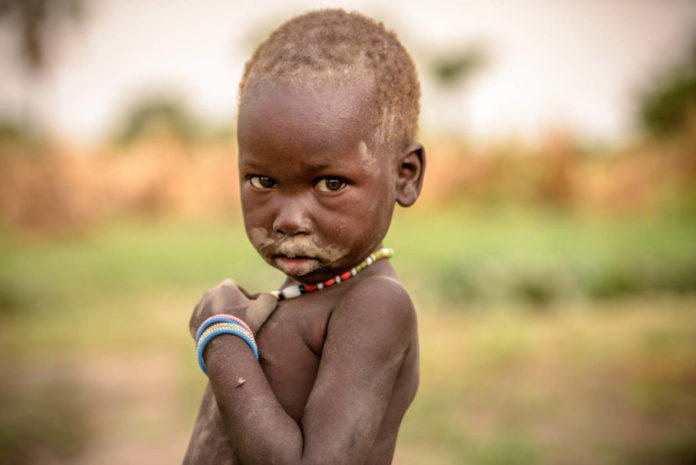Nutrition Africa Investor Forum (NAIF) is a first-of-a-kind event, hosted by the Global Alliance for Improved Nutrition (GAIN), in partnership with Royal DSM, the SUN Business Network (SBN) and African Business magazine, that aims to position nutrition as a promising new investment area
GENEVA, Switzerland
Over 200 delegates, including dealmakers, entrepreneurs and investors will meet at the Nutrition Africa Investor Forum (NAIF) on October 16-17 – World Food Day — in Nairobi, Kenya, to explore partnerships, access business finance and enter new markets. Over these two days, selected Small and Medium Enterprises (SMEs) from across Africa will have opportunities to participate in the first ever Scaling Up Nutrition Pitch Competition as well as The Nutrition Dealroom to meet venture capitalists and business financiers to improve their access to finance.
NAIF is a first-of-a-kind event, hosted by the Global Alliance for Improved Nutrition (GAIN) (www.GainHealth.org), in partnership with Royal DSM, the SUN Business Network (SBN) and African Business magazine, that aims to position nutrition as a promising new investment area. The event will bring together leaders from commerce, agri-food, development agencies, academia along with investors to share their experiences, present research results, explore collaborations and spark new ideas – all with the aim of developing new projects and attracting investment for high-impact nutrition businesses.
Malnutrition affects millions of children across the world. Africa alone has estimated that 58.7 million children under the age of five are stunted – having a low height for a given age – and 13.8 million who are wasting – low weight for a certain height. There is no doubt that stunted children today will lead to stunted economies tomorrow. In fact, African nations lose (https://bit.ly/2NHLEWS) between 1.9% and 16% of the gross domestic product (GDP) annually to undernutrition due to increased mortality, absenteeism, chronic illnesses, and lost productivity. Governments alone cannot address this issue. Private sector investment is key to tackle this challenge. In fact, the nutrition sector offers tremendous opportunities to businesses.
There is a central role for business in tackling malnutrition in Africa, explains Fokko Wientjes, vice president of nutrition in emerging markets and public-private partnerships at Royal DSM.
“As scaling up nutrition action delivers at least $16 in returns on investment for every $1 spent (https://bit.ly/1vLeJjf), nutrition-sensitive capital investments along the entire food value chain are likely to represent (https://bit.ly/2xE2jk5) a tremendous purpose-driven investment opportunity. We will fundamentally integrate SDG 1 (poverty reduction) with SDG 2 (hunger & nutrition) by producing locally; Africa nourishes Africa.”
Africa’s demographic dividend is also an opportunity, Mr. Wientjes reveals, “There are more than 1 billion people in the current African consumer market. This is expected to increase to more than 2 billion (https://bit.ly/2xRXp2d) by 2050. With 226 million people (https://bit.ly/2eVsjPh) aged between 15 and 25 years, the continent also has the youngest population in the world. This represents enormous potential: a young, growing African consumer market that is more health-conscious, favouring nutritious and healthy foods. Emerging markets are the fastest urbanizing countries in the world. They are moving away from subsistence and smallholder farming and with that separating the producer from the consumer.”
In fact, SMEs, along with smallholder farmers, make up the bulk of the actors in the food system in developing and emerging markets. They play a key role as input suppliers, off-takers, processors, and distributors, which furthermore creates jobs and enhances regional economic growth.
Yet, barriers to accessing finance mean that agri-food SMEs are not achieving their full potential in developing and scaling up market-based solutions that can improve the consumption of safe and nutritious foods.
“We have a great opportunity to close that gap,” explains Dr. Lawrence Haddad, GAIN’s Executive Director, “by creating a sustainable food value chain and working through local agrifood industry SMEs, to ensure that nutritious foods are more accessible, affordable, and aspirational. To help this cause, GAIN has recently launched a Nutritious Foods Financing Program (https://bit.ly/2ObH8PK), which aims to build and maintain an investable pipeline of opportunities among agrifood SMEs, linking this to investors, leveraging blended finance options to help de-risk private investments, and providing technical assistance to investees”.
The Forum will also be host to two engagement channels to facilitate partnerships between high-impact nutrition businesses and venture capitalists and financers:
The Nutrition Dealroom will bring investors face-to-face with established small and medium growing businesses. This transaction and deal-making platform will showcase Africa’s fastest-growing enterprises working to improve nutrition in a sustainable and scalable way and aims to achieve tangible results by matching a curated portfolio of investment-ready companies with private sector investors.
The first Africa edition of the Scaling Up Nutrition Pitch Competition, will be launched. Organised by the Scaling Up Nutrition Business Network (SBN), an initiative of GAIN and the UN World Food Program (WFP), plus local partners, the competition aims to showcase investment opportunities presented by SMEs working to improve access to nutritious food. Out of more than 450 outstanding entries, 21 SMEs have been shortlisted from national pitch competitions in Nigeria, Tanzania, Mozambique, Malawi, Ethiopia, Kenya and Zambia. Each entrepreneur will pitch their innovative nutritional investment opportunities to a panel of influential judges. The judges will select the overall winner who will be awarded with the title of SBN Nutrition Champion, which includes a travel and technical assistance prize. In addition, other top performing finalists stand a chance to win cash and technical assistance awards generously contributed by partners.
“Through years of experience working with African partners and governments, I am convinced that if we grow and support high impact businesses in food systems in Africa, we will be able to make inroads to reducing malnutrition,” concludes Dr. Haddad, “The potential is huge if we can get the investment recipe right”.



















